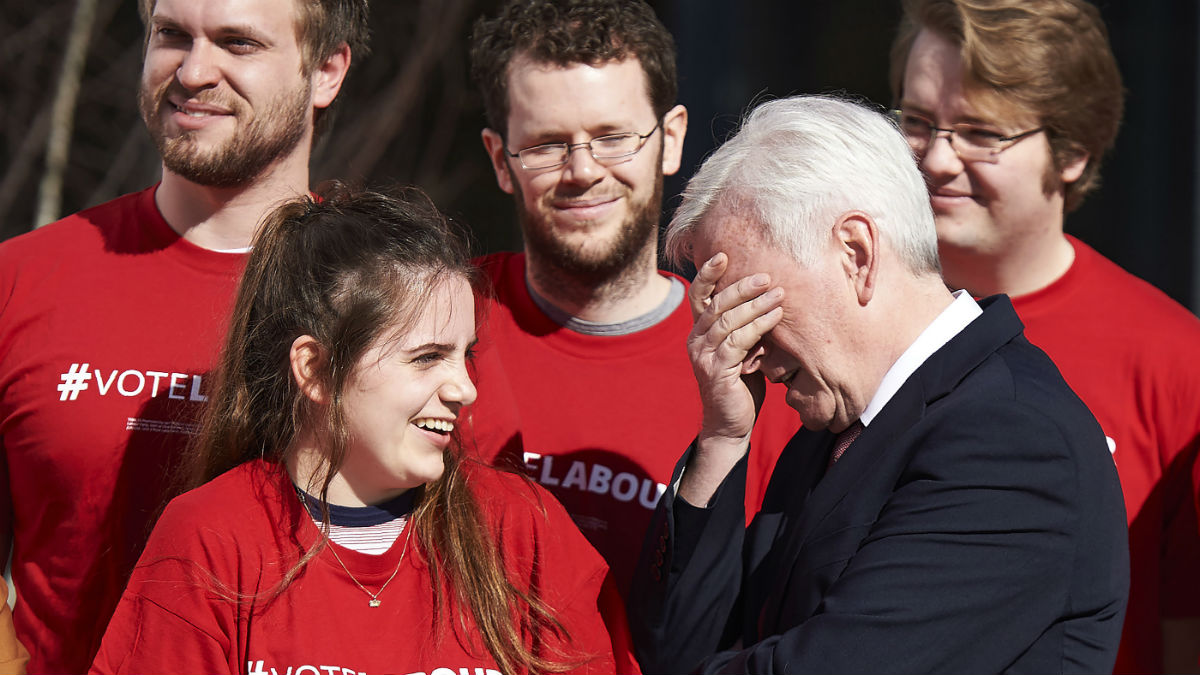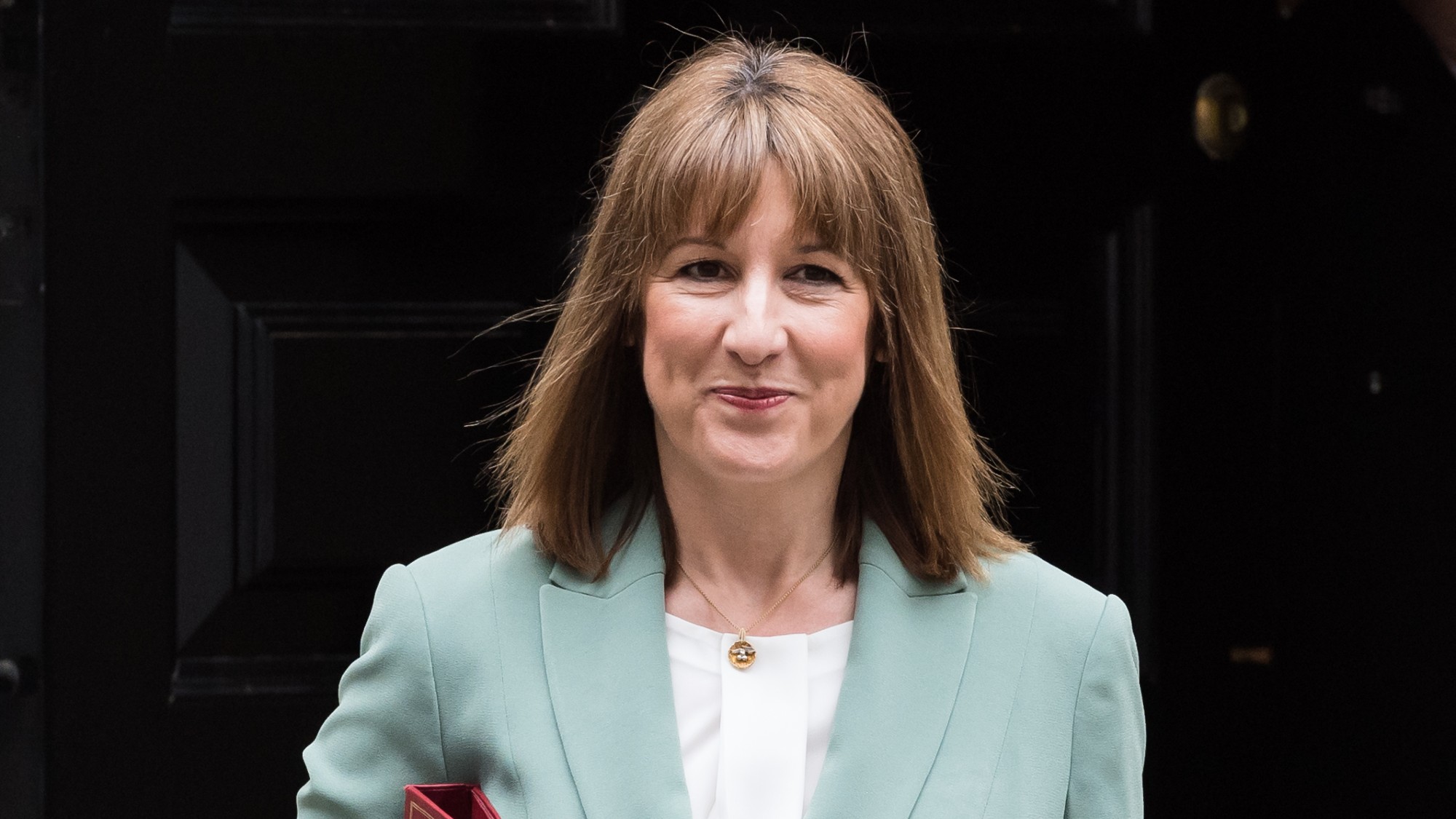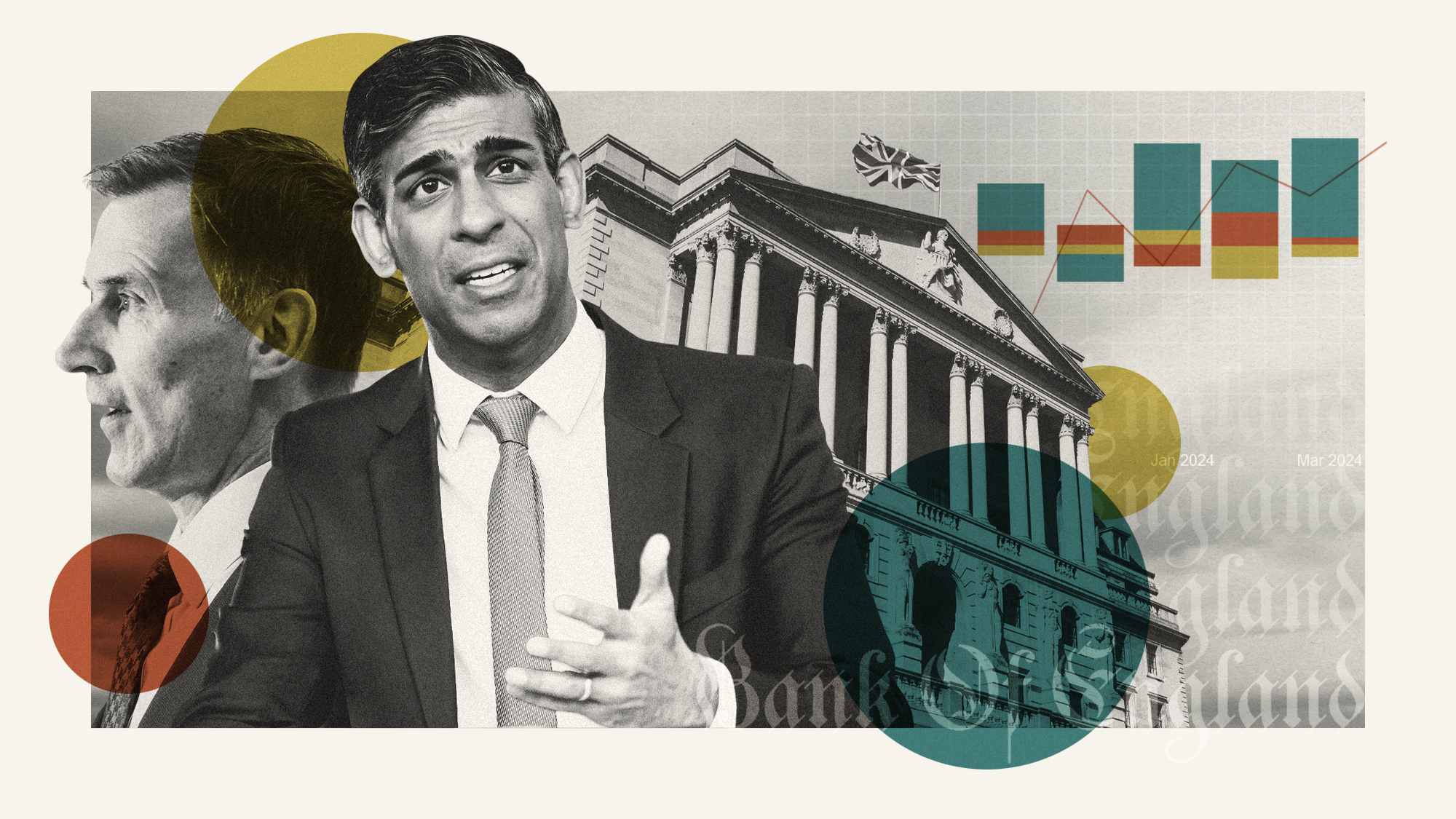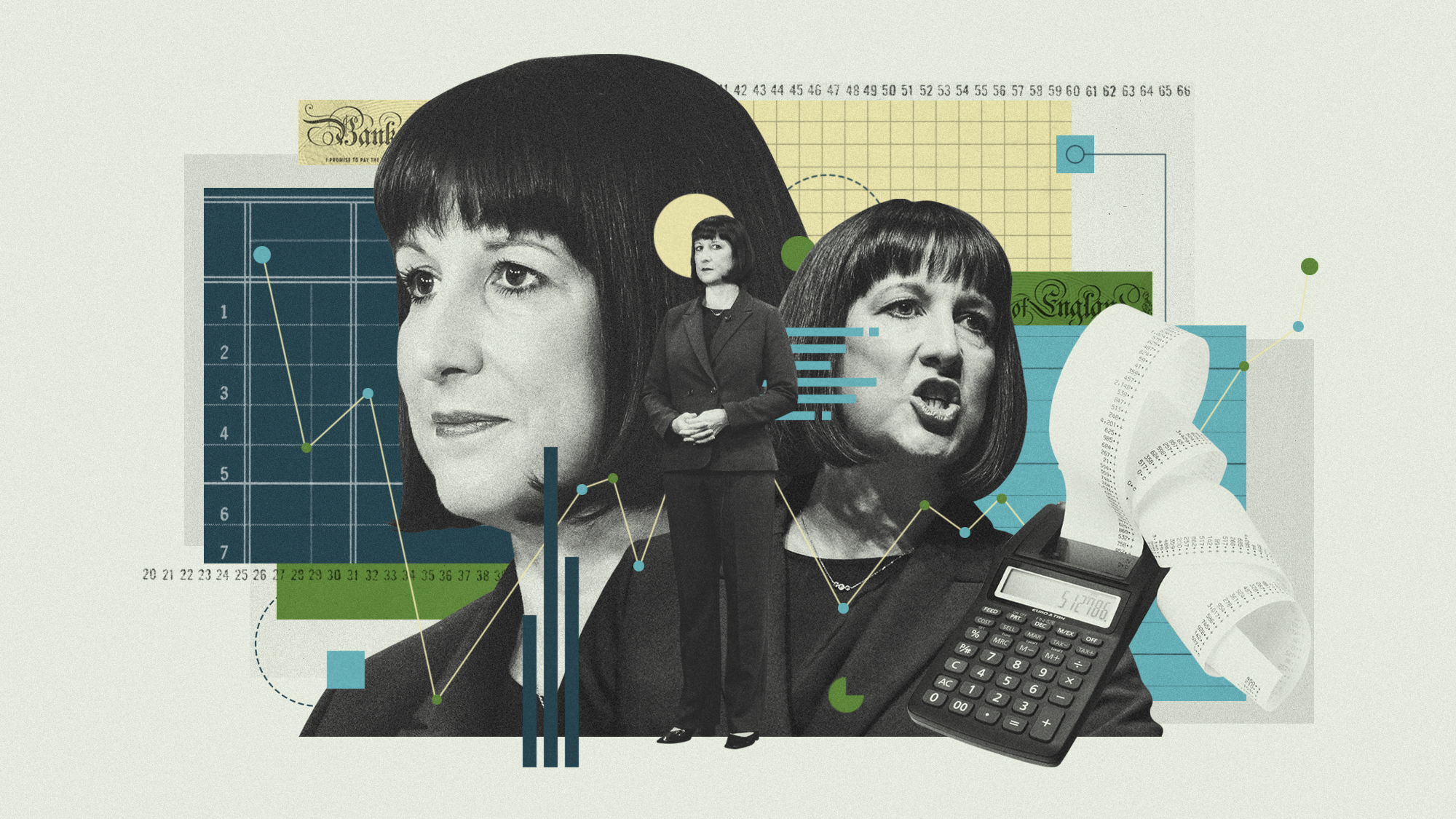Labour's new economics: 'Big on vision, short on detail'
Jeremy Corbyn and John McDonnell set out their plans to 'surpass even the Atlee government' for reforms

A free daily email with the biggest news stories of the day – and the best features from TheWeek.com
You are now subscribed
Your newsletter sign-up was successful
Labour's revitalised leadership, which survived the local elections in better shape than its enemies had hoped, is beginning its financial pitch to the electorate.
Watched over by party activists, leader Jeremy Corbyn and shadow chancellor John McDonnell set out what they described as "a new economics" during a "State of the Economy" conference on Saturday, reports the BBC.
"No one can doubt their ambition," says Chris Mason, a political correspondent at BBC News.
The Week
Escape your echo chamber. Get the facts behind the news, plus analysis from multiple perspectives.

Sign up for The Week's Free Newsletters
From our morning news briefing to a weekly Good News Newsletter, get the best of The Week delivered directly to your inbox.
From our morning news briefing to a weekly Good News Newsletter, get the best of The Week delivered directly to your inbox.
McDonnell claimed he wanted radical reforms to "surpass even the Attlee government", a reference to Clement Atlee's post-war Labour administration which founded the NHS, together with the "fundamental business of reforming capitalism".
But in reality, Mason says, the conference was "big on vision, but short on new detail… no surprise with the next general election, in all likelihood, not until 2020".
So what did we learn? Well, firstly, there was more talk of Labour's new fiscal credibility that would still "reject the dreadful choice of austerity". This refers to the previously-announced "iron discipline" that will see a commitment to a day-to-day budget surplus, but renewed spending on big projects that, it is hoped, would fuel growth.
Corbyn added a little meat to that bone by promising to establish a National Investment Bank to fund and manage a new wave of infrastructure investments.
A free daily email with the biggest news stories of the day – and the best features from TheWeek.com
Elsewhere, we had the first taste of formal policy changes, with a pledge to introduce local rent-control powers allowing councils to limit private rental increases to below the rate of inflation for the duration of a tenancy.
It is a similar scheme to one of the headline policies under former leader Ed Miliband's failed 2015 election campaign – and one that "95 per cent of economists" agree is a "terrible idea", writes Tim Worstall on Forbes.
"Quite simply limiting the price of rent reduces the number of housing units made available for rent. And that's all you need to know about it," he adds.
Mostly, there was a lot of attention on what is not currently working, with swaths of the UK's economic institutions branded "not fit for purpose". Among these, the Daily Telegraph notes, McDonnell singled out HMRC, the Treasury and the Bank of England, which would have their mandates and fundamental formation reviewed.
HMRC has too often let major corporations "off the hook" over their taxes, said the politician, while the Treasury's role has expanded such that it now "dominates not just economic policy, but the whole of domestic policy making in Whitehall… and it has faced serious questions about its own role".
Labour pledges 'iron discipline' on spending to win back electorate
11 March
A Labour government would balance the day-to-day budget and reduce debt as a proportion of GDP – and probably borrow more, too.
It may sound like a contradiction, but the new "fiscal credibility rule" announced by shadow chancellor John McDonnell (pictured above) yesterday does have a basis in sound economics. In short, it relies on the assumption that investment boosts growth.
McDonnell outlined his vision to the BBC's Kamal Ahmed in an interview ahead of a speech announcing the policy today. He said it is aimed at giving the public "confidence" in the economic credentials of his party while sources within Labour admitted it is a response to internal polling that revealed the economic concerns at the heart of the party's 2015 election defeat have not gone away.
Labour would hand new powers to the Office for Budget Responsibility, which would police the rule by reporting to parliament directly rather than, as now, to the Treasury. It would promise to balance core government spending with tax receipts and reduce overall debt levels in every year, but allow room for spending on investment – possibly fuelled by more borrowing.
"The shadow chancellor will make the case that historically, low government borrowing rates are an opportunity to spend more on investment to boost growth in the economy," adds Sky News. "This would, in theory, allow billions more to be borrowed and spent on capital projects but within an overall envelope of debts shrinking, in relation to the size of the economy."
The problem would come if a future Labour government borrowed heavily and sufficient economic growth failed to materialise. But McDonnell asserts the party would tailor borrowing levels so that they fell every year as a proportion of GDP, something that may prove difficult when managing long-term investment projects.
Greg Hands, the chief secretary to the Treasury, immediately pointed at the potential for borrowing to argue Labour was a threat to economic security. "Labour spent and borrowed too much last time they were in power," he said. "It's clear they've not learned their lesson and can't be trusted with the economy."
The new policy would be less restrictive than the new fiscal rules imposed by Chancellor George Osborne in the autumn, which compels the government to run an overall fiscal surplus, including investment spending, by the end of this parliament and in all "normal" years. After some naval-gazing and following an eleventh hour U-turn, Labour eventually opposed that law change.
-
 Antonia Romeo and Whitehall’s women problem
Antonia Romeo and Whitehall’s women problemThe Explainer Before her appointment as cabinet secretary, commentators said hostile briefings and vetting concerns were evidence of ‘sexist, misogynistic culture’ in No. 10
-
 Local elections 2026: where are they and who is expected to win?
Local elections 2026: where are they and who is expected to win?The Explainer Labour is braced for heavy losses and U-turn on postponing some council elections hasn’t helped the party’s prospects
-
 6 of the world’s most accessible destinations
6 of the world’s most accessible destinationsThe Week Recommends Experience all of Berlin, Singapore and Sydney
-
 Autumn Budget: will Rachel Reeves raid the rich?
Autumn Budget: will Rachel Reeves raid the rich?Talking Point To fill Britain’s financial black hole, the Chancellor will have to consider everything – except an income tax rise
-
 Is Rachel Reeves going soft on non-doms?
Is Rachel Reeves going soft on non-doms?Today's Big Question Chancellor is reportedly considering reversing controversial 40% inheritance tax on global assets of non-doms, after allegations of 'exodus' of rich people
-
 Airport expansion: is Labour choosing growth over the environment?
Airport expansion: is Labour choosing growth over the environment?Today's Big Question Government indicates support for third Heathrow runway and expansion of Gatwick and Luton, despite climate concerns
-
 Will Keir Starmer scrap the two-child benefit cap?
Will Keir Starmer scrap the two-child benefit cap?Today's Big Question PM signals 'change in tone' as Labour rebels prepare to back amendment calling for immediate end to controversial 'social cleansing' policy
-
 Is the UK economy returning to normal?
Is the UK economy returning to normal?Today's Big Question Tories claim UK has 'turned a corner' while Labour accuses government of 'gaslighting' public
-
 Securonomics: what is Rachel Reeves' economic plan and will it work?
Securonomics: what is Rachel Reeves' economic plan and will it work?The Explainer Focus on economic security and the resilience of industry in an uncertain world is 'key to growth', say Labour
-
 The birth of the weekend: how workers won two days off
The birth of the weekend: how workers won two days offThe Explainer Since the 1960s, there has been talk of a four-day-week, and post-pandemic work patterns have strengthened those calls
-
 Recession in doubt after unexpected growth in UK economy
Recession in doubt after unexpected growth in UK economySpeed Read Service industry provides welcome boost but experts warn that economy is ‘at best stagnating’